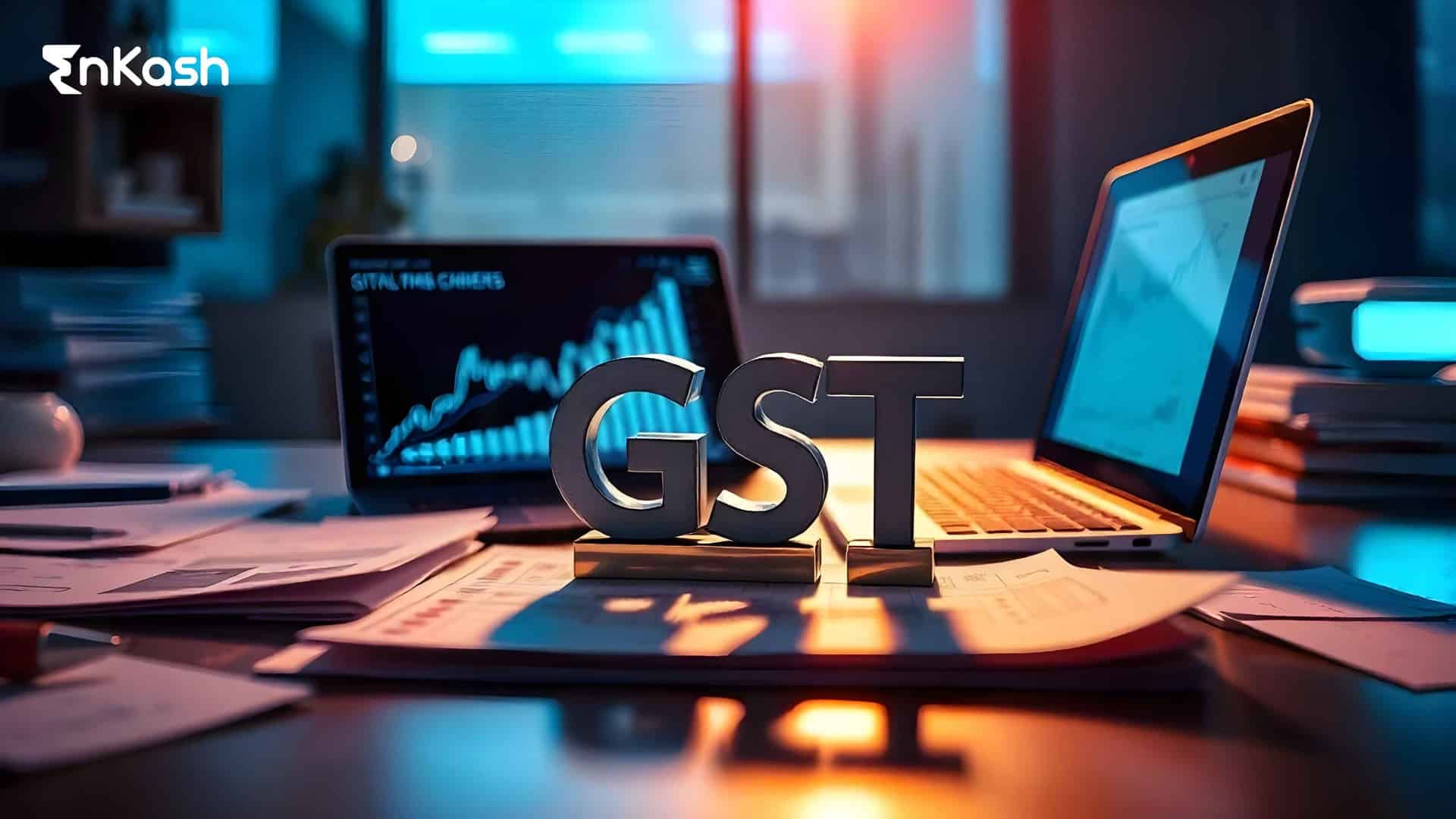Running a business in India throws open a lot of opportunities, but also brings its own set of responsibilities. One of the key aspects of complying with regulations is understanding and efficiently managing your Goods and Services Tax (GST) returns. With numerous forms and varying due dates, it can feel overwhelming at times. But fear not, fellow entrepreneur! This comprehensive guide will break down the different types of GST returns, their filing deadlines, and everything else you need to stay compliant and penalty-free.
What is GST return, anyway?
Think of a GST return as a report card for your tax compliance. It’s a document electronically submitted to the tax authorities, detailing your business’s outward and inward supplies (sales and purchases), along with the calculated tax liability. Filing them accurately and on time is crucial to avoid penalties and maintain a good reputation with the government.
Types of GST Returns in India
While there are 13 different GST return forms, not all apply to every business. The specific ones you need to file depend on factors like your registration type, turnover, and business activities. Here’s a breakdown of the different types of GST returns:
GSTR-1: Outward Supplies Details
This monthly return showcases all your sales of goods and services during the month, along with the tax charged i.e., there is a difference between CGST, SGST, and IGST. So you should know the tax charged according to that. Think of it as a detailed invoice log for your outward transactions. It helps the tax authorities track your sales and ensure accurate tax calculations.
GSTR-3B: Summary Return
This monthly return is the hero of GST compliance for most businesses. It summarizes both your outward and inward supplies (purchases), calculates your tax liability, and lets you pay the taxes directly. It’s a one-stop shop for tax payment and reporting. It ensures that your taxes are paid on time and provides an overview of your tax obligations.
GSTR-4: Composition Scheme
If your annual turnover is less than Rs. 1.5 crore, you might be under the composition scheme. This quarterly return simplifies your filing with a fixed tax rate based on your turnover, simplifying compliance for eligible businesses. This helps small businesses avoid the complexity of regular GST filings by providing a simplified method for tax payment.
GSTR-5: Non-Resident Taxpayers
If you’re a foreign business making taxable supplies in India, this return is your ticket to GST compliance. It’s like GSTR-1 for non-residents. It captures all the details of taxable supplies made by foreign entities, ensuring they comply with GST in India and properly report their sales.
GSTR-5A: ISD Return
This monthly return is filed by Intermediary Suppliers of Services (ISDs) who facilitate the supply of online information and database access or retrieval services from a supplier located outside India to a recipient in India. This return ensures that businesses providing online services from abroad to Indian customers comply with GST laws.
GSTR-6: Input Tax Credit Return
This monthly return is filed by registered buyers under the reverse charge mechanism, where they pay GST on behalf of the supplier and claim the ITC later. It helps businesses to claim the input tax credit for taxes paid on purchases made under reverse charge, ensuring they are not overtaxed.
GSTR-7: TDS Deductor
If you deduct tax at source (TDS) on certain payments, like rent or professional fees, this monthly return details that information, and helps you track and report it. It’s your GST contribution as a tax collector. This return ensures that the TDS deducted is properly reported and paid to the government.
GSTR-8: E-commerce Operator
This monthly return applies to e-commerce platforms like Amazon or Flipkart. It tracks taxable supplies made through its platform. E-commerce operators file this return to ensure that the GST on sales made via their platforms is properly accounted for and remitted.
GSTR-9 & GSTR-9A: Annual Recap
These annual returns offer a consolidated overview of all your monthly/quarterly filings for the financial year. GSTR-9 is for regular taxpayers, while GSTR-9A caters to composition scheme businesses. They ensure your annual tax liability is accurately represented. These returns allow businesses to rectify any discrepancies and ensure compliance with GST for the entire year.
GSTR-10: Final Return
This final return is filed when your GST registration is cancelled or surrendered. So learn about the GST registration requirements to make this process seamless. It ensures that any remaining tax liabilities are cleared, and your business is formally de-registered from the GST system.
GSTR-11: Refund Claim
If you paid excess tax or faced input tax credit issues, this return allows you with a Unique Identification Number (UIN) to claim refunds on taxes paid for your purchases. This helps taxpayers, such as foreign embassies, recover the GST paid on eligible goods and services purchased in India.
CMP-08: Composition Levy
This quarterly return is filed by taxpayers who have opted for the composition levy scheme, where they pay a fixed tax rate on their turnover instead of calculating and paying GST on individual sales and purchases. It helps businesses under the composition scheme stay compliant with simplified reporting and payment of taxes.
ITC-04: Inter-State B2C Supplies Refund Claim
This return is filed by registered taxpayers to claim a refund of input tax credit (ITC) on inward supplies of goods received from unregistered suppliers located in another state. It ensures that businesses are not penalized for taxes paid on inter-state purchases, helping them recover excess ITC.
Remember, not all types of GST returns apply to all businesses. The ones you need to file depend on your specific registration type and activities.
GST Return Filing Due Dates
The timelines for filing GST returns vary according to the category of the return as well as the kind of business.
Below is a comprehensive explanation of the due dates relating to the varying types of GST returns so that the businesses adhere to the regulation and do not incur any fines:
GSTR-1: Outward Supplies Details
For monthly filers, GSTR-1 is required to be submitted by the 11th day of the subsequent month. In the case of quarterly filers, the return is supposed to be submitted by the 13th day of the month following the closure of the quarter.
GSTR-3B: Summary Return
For monthly filers, GSTR-3B should be submitted by the 20th day of the succeeding month.
For quarterly filers, it should be filed by the 22nd or 24th day of the subsequent month depending upon the class of the taxpayer.
GSTR-4: Composite Scheme
The due date for filing GSTR-4 is the 30th of the month following the end of the financial year.
GSTR-5: Non-Resident Taxpayers
GSTR-5 filing has to be done on or before the 13th of next month in respect of all months under consideration.
GSTR-5A: ISD (Intermediary Supplier of Services)
The respective filing is due by the 20th of the subsequent month.
GSTR-6: Input Tax Credit Return
The deadline for the return filing is on or before the 13th of the subsequent month.
GSTR-7: TDS Deductor
The monthly return is to be filed by the 10th of the subsequent month.
GSTR-8: E-Commerce Operator
E-commerce operators are supposed to file this every month, by the 10th of the ensuing month.
GSTR-9 & GSTR-9A: Annual Returns
These annual returns have to be filed by 31st December of the next financial year.
GSTR-10: Final Return
GSTR-10 must be submitted for the final return within three months from the effective date of cancellation of GST registration.
GSTR-11: Refund Claim
There is no prescribed date for GSTR-11. Return can be filed at any time post-completion of the respective quarter.
CMP-08: Composition Levy
Eighth day of the month following the end of the quarter of the quarterly return.
ITC-04: Inter-state B2C Supplies Refund Claim
This goods return is filled up annually or half yearly as the case may be depending upon turnover with 25th April and 25th October as due dates.
Missing deadlines can attract penalties and disrupt your business operations. So, mark your calendars! Here’s a quick overview of the due dates for various returns:
Please note:
GST Return Name |
Type of Taxpayer |
Frequency |
Due Date |
GSTR-1 |
All registered taxpayers (except composition) |
Monthly |
11th of the next month OR 13th day of the month succeeding the end of every quarter (Quarterly) |
GSTR-3B |
All registered taxpayers (except composition) |
Monthly/Quarterly (QRMP) |
20th of the next month (Monthly) OR 22nd/24th of the month following the quarter (Quarterly) |
GSTR-4 |
Composition scheme taxpayers |
Annually |
30th of the month succeeding the financial year |
GSTR-5 |
Non-resident taxpayers |
Monthly |
13th of the next month |
GSTR-5A |
ISD return |
Monthly |
20th of the next month |
GSTR-6 |
Input tax credit return |
Monthly |
On or before the 13th of month M+1 or the extended date |
GSTR-7 |
TDS Deductor |
Monthly |
10th of the next month |
GSTR-8 |
E-commerce operator |
Monthly |
10th of the next month |
GSTR-9 |
Regular taxpayers |
Annual |
31st December of the following year |
GSTR-9A |
Composition scheme businesses |
Annual |
31st December of the following year |
GSTR-10 |
Final return |
One-time |
Within 3 months of cancellation/surrender of registration |
GSTR-11 |
Refund claim |
Quarterly |
No specific due date, any time after the end of the relevant quarter |
CMP-08 |
Composition levy |
Quarterly |
18th of the month following the quarter-end |
ITC-04 |
Inter-state B2C supplies refund claim |
Annually
(for AATO up to Rs.5 crore) Half-yearly (for AATO > Rs.5 crore) |
25th April where AATO is up to Rs.5 crore.
25th October and 25th April where AATO exceeds Rs.5 crore. (AATO = Annual aggregate turnover) |
Please check the GST state code list as well for more in-depth information. Also, this table is intended for informational purposes only and may not be exhaustive.
Specific due dates and filing requirements may vary depending on state regulations and holidays.
Always double-check with your local tax authorities, a trusted advisor, or the official GST portal for the latest information and exact deadlines applicable to your case.
Interest and Late Fee
Filing your GST returns on time is crucial, but sometimes, unforeseen circumstances might lead to delays. While that’s understandable, remember that late filing comes with financial consequences. Here are some things to note:
Interest
Think of interest as the price you pay for borrowing time from the government. For any delay in filing your GST returns, you’ll be liable to pay interest at the rate of 18% per annum on the tax amount payable. This interest is calculated from the due date of the return till the date of actual GST payment.
Late Fee
Late fees are charged at Rs.100 per day/Act. Hence, it will be Rs.100 under SGST and Rs.100 under CGST. The total will be Rs.200/day, up to a maximum of Rs.5,000. Please note that from the month of/quarter ended June 2021, the maximum amount of late fees has been revised as below:
Late fee capped at Rs. 250^ for taxpayers whose total amount of central tax payable is Nil
Rs.1,000^ for taxpayers with an annual aggregate turnover of up to Rs.1.5 crore in the previous financial year
Rs.2,500^ for taxpayers with an annual aggregate turnover exceeding Rs.1.5 crore and up to Rs.5 crore in the previous financial year
^Please note that under SGST an equal penalty will apply. And there are no late fees under IGST.
Remember:
Late fees and interest are cumulative, meaning they add up over time. The longer the delay, the heavier the financial burden.
While late fees have maximum limits, interest continues to accrue until the tax is paid in full.
Filing even a nil return on time can save you from late fees, even if you have no tax liability for that period.
Does GST Have to Be Paid Monthly?
Yes, the frequency of GST payment depends on the type of GST return and the turnover of the business. Here’s a breakdown:
- Monthly Filing: The GSTR-3B form is mostly used for making monthly GST payments by the majority of businesses. This applies to businesses having turnover above the prescribed limit, and they have to ensure that they file and pay on time to avoid being penalized.
- Quarterly Filing: The small businesses that are registered under the Composition Scheme and whose annual gross turnover does not exceed Rs. 1.5 crores can apply GST quarterly. They are required to make GST payments quarterly by using GSTR-4 and CMP-08.
What are the Benefits of Timely Filing:
It is necessary to monitor the filing dates because there may be penalties and interest for late submissions. Failure to comply can result in penalties and, in some cases, the cancellation of one’s GST registration. Timely submissions must be made to prevent unnecessary disruptions.
Final thoughts
In conclusion, understanding the types of GST returns, their filing process, and due dates is pivotal for businesses aiming for seamless compliance. By staying informed and proactive, businesses can navigate the GST landscape with ease, ensuring financial transparency and contributing to a robust tax ecosystem. Stay informed, and stay compliant!
FAQs
Who should file GST returns?
Any business or individual registered under GST is required to file GST returns. This includes regular taxpayers, composition scheme taxpayers, non-resident taxpayers, and those registered under TDS or TCS.
How many returns are there under GST?
There are currently 13 GST return forms, ranging from monthly and quarterly returns to annual. However, the specific returns you need to file depend on your business profile.
What are GST returns and why are they important for businesses?
They are mandatory reports to the government, ensuring accurate tax assessment and compliance. Filing them on time helps avoid penalties and ensures smooth business operations. They are essential for businesses as they ensure compliance with tax regulations and help in claiming input tax credits.
How frequently should businesses file their GST returns?
The frequency depends on your registration type and turnover. Most businesses file GSTR-1 monthly and GSTR-3B monthly/quarterly. Consult a tax advisor for specific guidance.
What information and documents are required to file GST returns?
You’ll need details of your sales, purchases, tax rates, invoices, and bank statements. Consult your accountant for specific requirements and maintain proper records to facilitate smooth filing.
Are there any penalties or consequences for late or incorrect GST return filings?
Yes, late filing attracts interest and late fees. Incorrect filing might lead to penalties and tax demands. It’s important to file your returns accurately and on time to avoid these consequences.
Can businesses claim input tax credits on their GST returns? If so, what are the requirements and procedures?
Yes, businesses can claim input tax credits on the GST they paid on their purchases. However, certain conditions and procedures need to be followed to claim ITC. It’s best to consult a tax advisor for specific guidance on ITC claims.
How to determine which GST return form applies to my business?
Each type of GST return form prescribed for business entities contains unique requirements based on the type of registration, annual turnover, and business type. For more information, find professional assistance or visit the appropriate section of the official GST portal.
Is it possible to file GST returns and have no transactions for the period?
A business may not have had any transactions in a particular period, but this does not omit the filing ‘no activity’ return in the period. This is to help ensure compliance by avoiding persistent penalties for filing out of the prescribed period even if the return is a no-activity.
How can I correct a mistake in my GST return?
If you discover any mistakes in the filed GST return, you can file an amendment request in the next return. It is advisable to always have adequate supporting documents to effect changes in the subsequent returns.
What if I don’t file the GST return on time?
Constraints on time could lead to penalties and interest. There will be an additional charge for the Delay Rate which will be Rs. 200 per day (Rs. 100 each under CGST, SGST). There will be an increase in interest on any unpaid taxes by 18% per annum.
Note: This blog provides general information and should not be construed as professional tax advice. Always consult a qualified tax advisor for specific guidance on your business’s GST.














